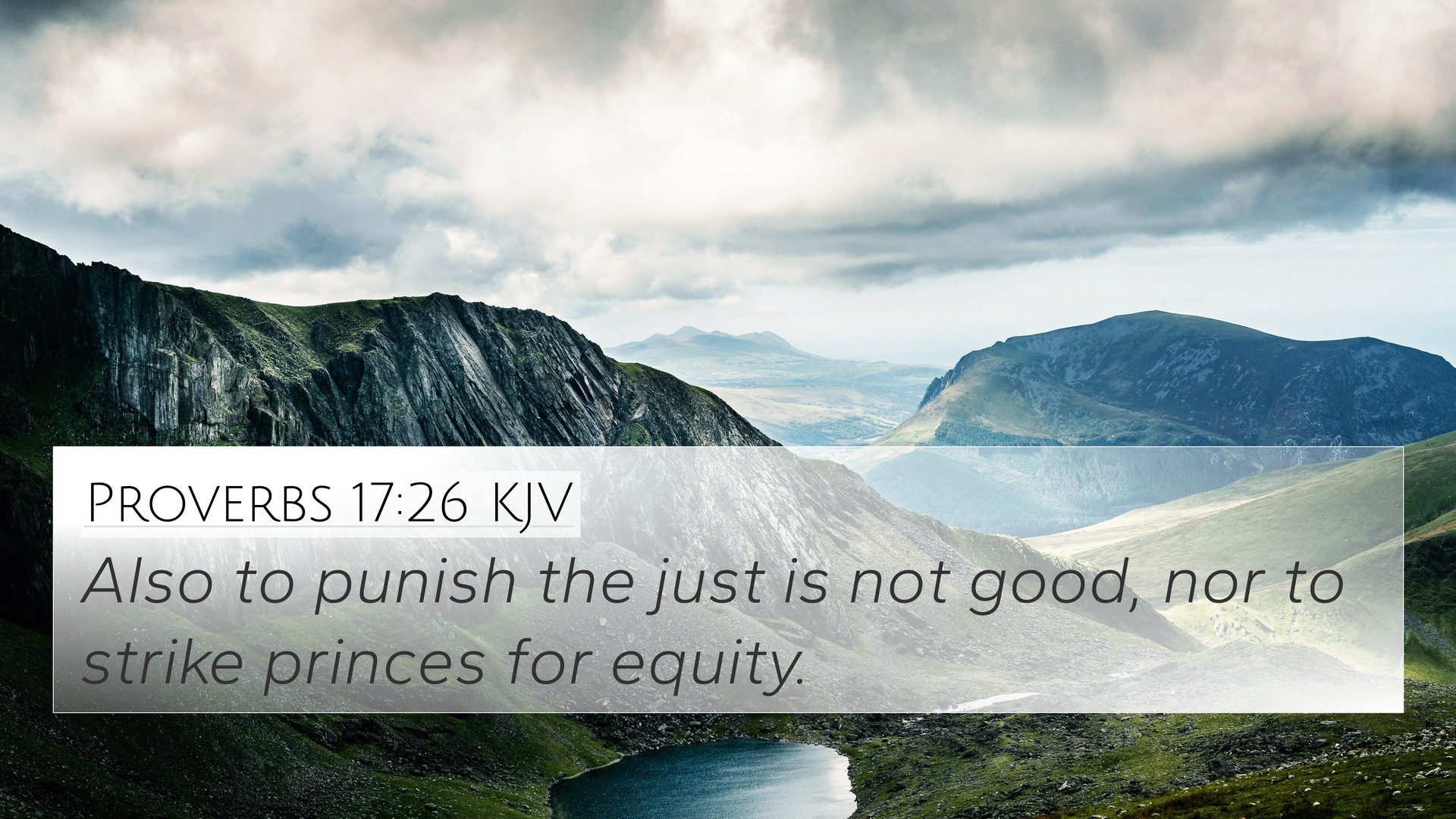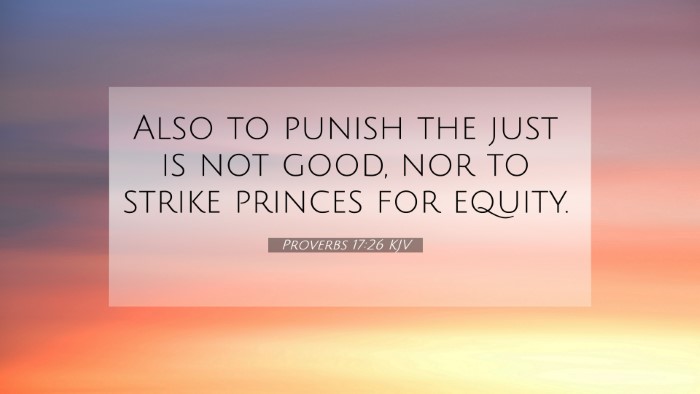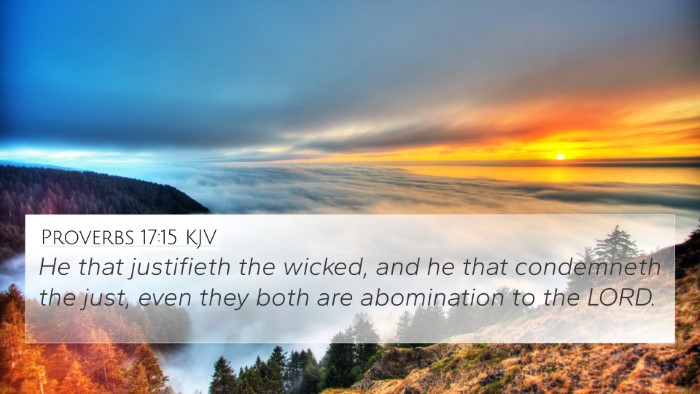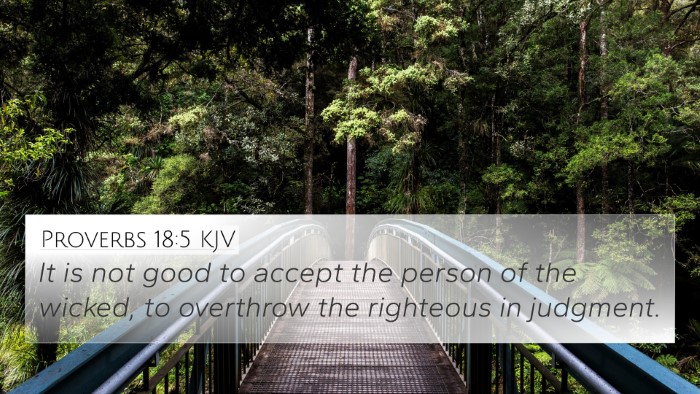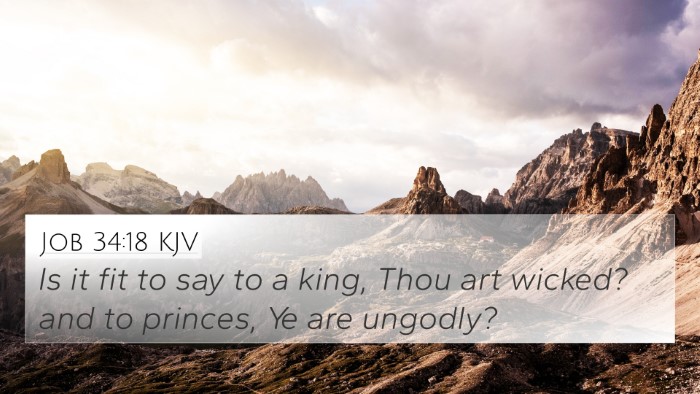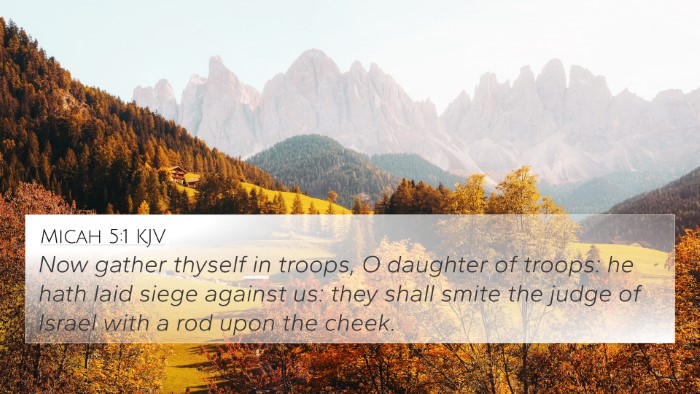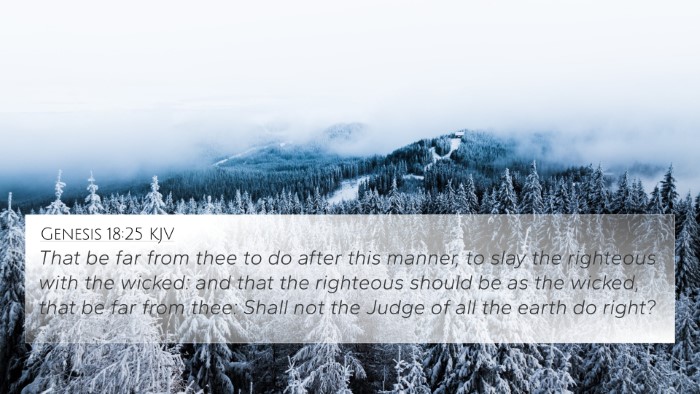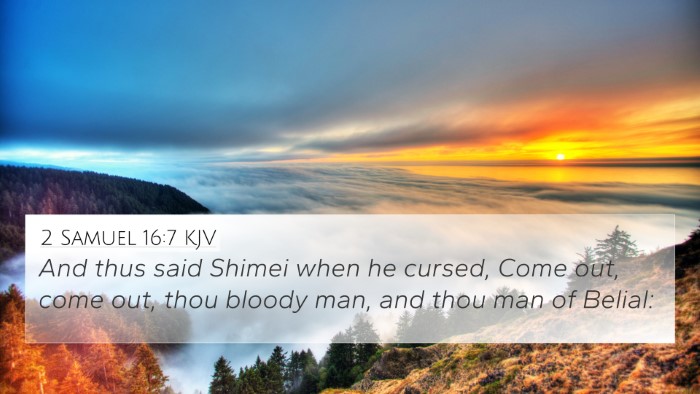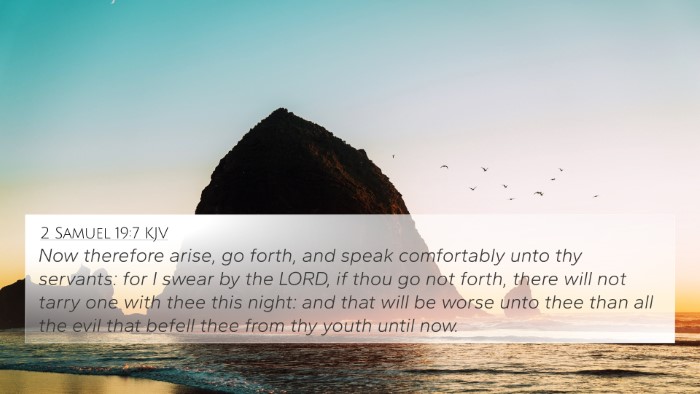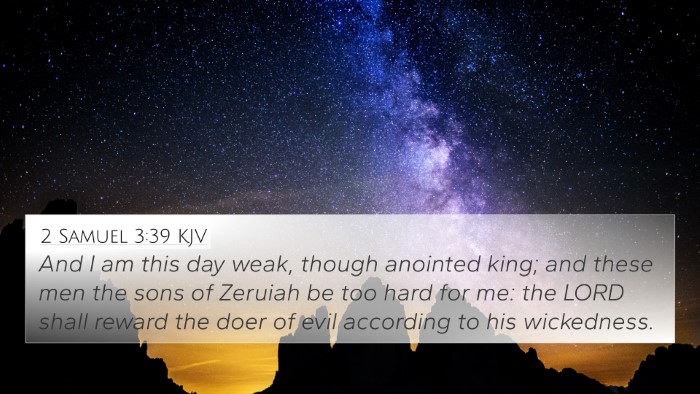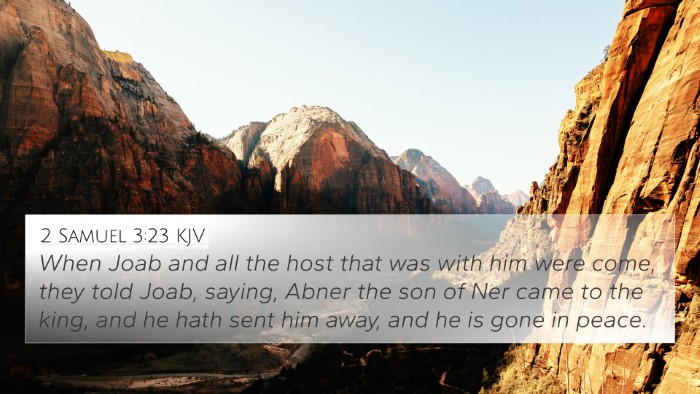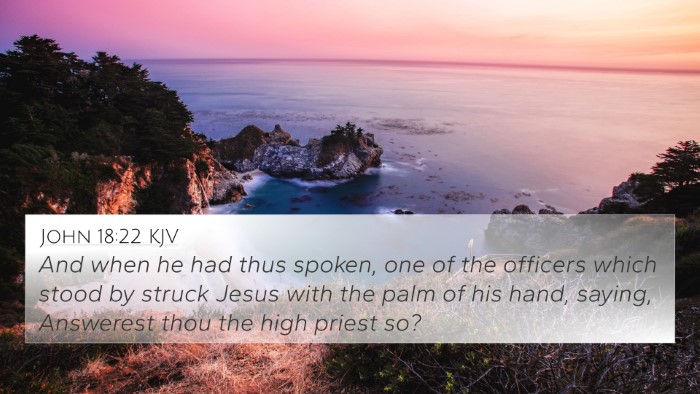Understanding Proverbs 17:26
Proverbs 17:26 states, "Also to punish the just is not good, nor to strike princes for equity." This verse invites reflection on justice, the treatment of the righteous, and the principles guiding authority and governance.
Context and Interpretation
The wisdom literature of Proverbs often contrasts the righteous with the wicked and advocates for just treatment. In this chapter, the author applies these themes to societal leaders and justice itself.
Key Themes
- Justice and Fairness: The verse emphasizes the importance of justice, particularly highlighting that punishing the just is intrinsically wrong.
- Authority and Duty: It alludes to the responsibilities of rulers (princes) to ensure fairness and equity in their judgments.
- Moral Integrity: The passage calls for ethical integrity in leadership, encouraging leaders to protect the upright rather than inflict punishment on them.
Bible Cross-References
Understanding Proverbs 17:26 is enriched by exploring relevant cross-references. Here are several inter-connected biblical texts:
- Proverbs 16:8: "Better is a little with righteousness than great revenues without right." This verse establishes the value of righteousness over material gain, linking to the unjust punishment of the righteous.
- Proverbs 21:15: "It is joy to the just to do judgment: but destruction shall be to the workers of iniquity." It emphasizes the joy of the righteous in justice, contrasting the fate of the wicked.
- Isaiah 10:1: "Woe unto them that decree unrighteous decrees, and that write grievousness which they have prescribed." This verse warns against unjust laws, similar to Proverbs 17:26's condemnation of the unjust treatment of the just.
- Micah 6:8: "He hath showed thee, O man, what is good; and what doth the LORD require of thee, but to do justly, and to love mercy, and to walk humbly with thy God?" This passage reflects the core values of justice and mercy.
- Matthew 5:10: "Blessed are they which are persecuted for righteousness' sake: for theirs is the kingdom of heaven." Jesus reinforces the principle of justice in the face of persecution.
- Romans 13:3: "For rulers are not a terror to good works, but to the evil." This highlights that leaders should protect the righteous, aligning with the themes found in Proverbs 17:26.
- James 2:13: "For he shall have judgment without mercy, that hath showed no mercy; and mercy rejoiceth against judgment." This encapsulates the principle of mercy versus justice.
Insights from Public Domain Commentaries
Various commentaries provide deeper insights into Proverbs 17:26:
- Matthew Henry: He emphasizes that it is a great injustice to punish the just, which undermines the moral fabric of society. Henry suggests that wisdom demands leaders act responsibly, making judgments that reflect fairness.
- Albert Barnes: Barnes discusses the implications of punishing the righteous and notes that equity should guide leaders. He highlights moral integrity and the natural consequences of unjust actions.
- Adam Clarke: Clarke indicates that the verse speaks against arbitrary rule and stresses that equity is crucial for maintaining justice within a society. He posits that mistreatment of the upright leads to societal decay.
Thematic Connections
This verse can be linked to broader biblical themes:
- Justice and Righteousness: Separate justice from injustice, ensuring that leaders understand their role is to serve the good and protect the innocent.
- Leadership Responsibility: Leaders are accountable to God for their conduct; thus, they face divine scrutiny for their actions towards the just.
- Protection of the Innocent: Throughout scriptural texts, a consistent theme emphasizes the need for safeguarding those who do good.
Concluding Thoughts
Proverbs 17:26 serves as a reminder of the biblical mandate for justice, an exhortation to uphold fairness in leadership, and a call to protect the righteous. The connections drawn through biblical texts enrich our understanding, offering a robust framework for interpreting justice as a divine principle.
Additional References
For deeper studies, tools like a Bible concordance or a Bible cross-reference guide can aid in discovering more about related themes and verses. Engaging in cross-referencing Bible studies enhances comprehension and reveals the intricate relationships among biblical texts.
The study of Proverbs 17:26, alongside its cross-references, generates a comprehensive landscape for understanding biblical justice, inviting believers to embody integrity while contending for righteousness in all areas of life.
